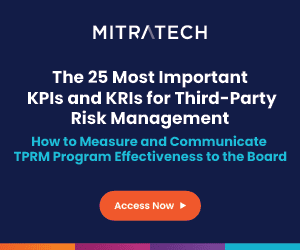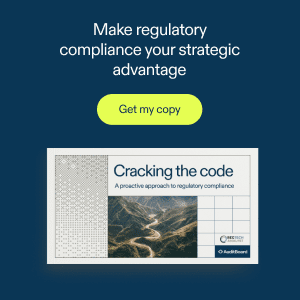Auditors need a complete understanding of the standard and how it affects their clients’ financial statements. AICPA’s Deana Thorps suggests four considerations auditors need to keep in mind when performing high-quality audits based on common challenges with accounting estimates.
One of the most significant changes to U.S. GAAP is FASB’s revenue recognition standard, FASB ASC Topic 606, Revenue from Contracts with Customers. The standard requires an entity to apply a five-step approach, including estimating the revenue recognized for the accounting period. When attest clients ask for implementation help, CPA firms are faced with the task of maintaining their independence. This can be daunting, given the complexity and scope of implementing the revenue recognition standard.
Auditors need a complete understanding of the standard and how it affects their clients’ financial statements. Here are four things auditors should bear in mind:
1. Risk Assessment Procedures
Risk assessment procedures, which are key to performing high-quality audits, are a common challenge. AU-C Section 315 requires auditors to obtain an understanding of the client and its environment. When assessing their client’s risks associated with ASC 606, auditors should understand the following:
- contract terms,
- processes and controls around the revenue recognition cycle and
- performance obligation(s).
When performing risk assessment procedures, auditors should understand the client’s contract terms to help determine expectations for the client and the customer. Doing so also provides insight on how the requirements of Topic 606 should be applied.
In addition, paragraph .08 of AU-C Section 540, Auditing Accounting Estimates, Including Fair Value Accounting Estimates, and Related Disclosures, requires auditors to consider the client’s processes, procedures and controls around the revenue transaction cycle. Auditors will need to obtain an understanding of the client’s procedures to meet the requirements of Topic 606 and identify the risks of material misstatement.
Auditors should also assess the client’s processes to identify the different performance obligations. Did the client develop procedures and controls related to granting customer options? How did the client determine whether options have material rights? The insights obtained from the risk assessment create the basis for further audit procedures.
2. Substantive Testing for Estimates
PCAOB inspections show that auditors performed insufficient test procedures relative to recognizing revenue where significant estimates are involved. AU-C Section 540, paragraph .12, requires auditors to determine whether:
- Management has appropriately applied the requirements of the applicable financial reporting framework relevant to the accounting estimate and
- The methods for making the accounting estimates are appropriate and have been applied consistently and whether changes from the prior period are appropriate in the circumstances.
Understanding Topic 606 requirements is key as an auditor designs and performs procedures to test significant estimates affecting a client’s financial statements. AU-C Section 540, paragraph .13, requires auditors to undertake one or more of the following in response to the assessed risks of material misstatements:
- Determine whether events occurring up to the date of the auditor’s report provide audit evidence regarding the accounting estimate.
- Test how management made the accounting estimate and the data on which it is based, including significant assumptions used by management.
- Test the operating effectiveness of the controls over how management made the accounting estimate, together with appropriate substantive procedures.
- Develop a point estimate or range to evaluate management’s point estimate.
3. Documentation of Material Accounting Estimates
Auditors also need to make sure they are completing the required documentation for material accounting estimates. AU-C Section 230, Audit Documentation, requires auditors to prepare documentation that allows an experienced auditor with no previous connection to the audit to understand the procedures performed, the results of those procedures and the conclusions.
Auditors need to consider the impact of the client’s estimated revenue from contracts and determine if it is material to the financial statements. When contracts are material, Paragraph .10 of AU-C Section 230 states audit documentation should include abstracts or copies of contracts or agreements in the audit documentation when audit procedures relate to the inspection of significant contracts or agreements.
4. Auditor Independence is Critical
Finally, auditors should evaluate the effect of multiple nonattest services provided to attest clients. The AICPA Code of Professional Conduct’s “Cumulative Effect on Independence When Providing Multiple Nonattest Services” interpretation (ET §1.295.020) specifies that performing multiple nonattest services can increase the significance of threats to independence, which a member should evaluate using the “Conceptual Framework for Independence” interpretation (ET §1.210.010). Examples of requests a client may make of a CPA firm that could put the auditor’s independence at risk include:
- Getting involved with the client’s FASB ASC 606 project team. Practitioners need to be careful and avoid performing management responsibilities.
- Assessing how FASB ASC 606 will impact the client. Practitioners could identify current process flows for revenue recognition. They could work with management to pull the information together, including the client’s existing accounting policies, processes, disclosures, data and systems requirements and internal control over financial reporting.
Auditors should evaluate whether performing multiple nonattest services, in the aggregate, poses significant threats to independence before agreeing to perform those services for an attest client. If threats are not at an acceptable level, auditors must apply safeguards to eliminate or reduce the threats to an acceptable level. Otherwise, auditor independence is impaired.



 Deana N. Thorps is the
Deana N. Thorps is the 








